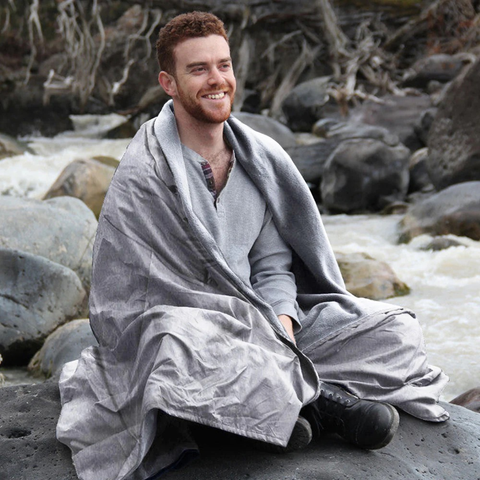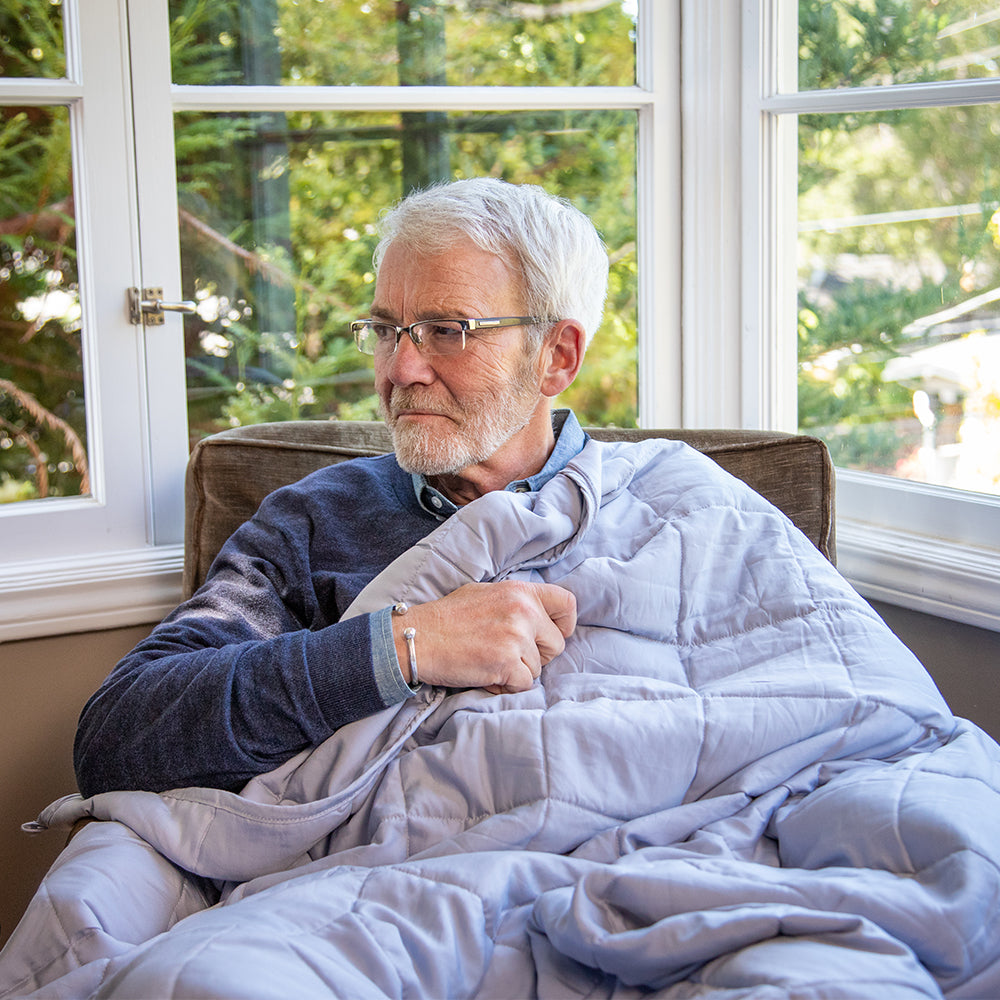Sensitivity to cold is a common occurrence and many people have cold hands and feet in winter and are constantly wrapped in blankets, especially the elderly. Sometimes the cold is due to the environment, but older people's sensitivity to cold is also linked to their own physical state and illness. Family members want to take care of their elderly relatives, which means figuring out how their needs differ. In this article we will explore the reasons why older people tend to feel cold, and offer some solutions so that they can stay warm and comfortable even in the cold.
Why are elderly people always cold?
The human body produces heat in two main ways: through muscle contraction (which is what we refer to as cold shivering, but also includes normal exercise, gastrointestinal motility, breathing and other activities) and through physiological metabolism (such as the synthesis of proteins and the degradation of substances in the body). As the elderly experience muscle atrophy, their physiological metabolism slows down, resulting in lower levels of heat production. In addition, the thinning of the skin and fat layer of the elderly makes it harder for them to maintain their body temperature, making them more sensitive to cold temperatures.
Elderly people may experience increased sensitivity to cold due to age-related issues, as well as medical conditions such as hypothyroidism, hypotension, anemia, atherosclerosis, diabetes, cardiovascular disease, hormonal disorders and side effects of medications. These can reduce blood supply, increase heat loss, or impede the body's ability to regulate temperature. Cold and fever, micronutrient deficiencies, and alcohol consumption can also contribute to a fear of cold. If your elderly relative's tolerance for cold has changed, it is important to consult their doctor to determine any potential underlying factors.
The risk of elderly cold intolerance
For elderly individuals, cold weather can be more than just uncomfortable or unpleasant; it can be downright dangerous. Winter hypothermia typically takes several days to develop in seniors. When a person over 65's body temperature drops to 35°C or 36°C, they may feel chilly, but will typically exhibit signs of drowsiness and fatigue. If their body temperature falls below 35℃, they may experience a disruption of consciousness. Their skin will be pale and cold to the touch, along with facial swelling and muscle stiffness. The breathing and heart rate will slow down. If left untreated, this can lead to cardiac arrest.
How do you keep seniors warm?
To protect elderly individuals from hypothermia, it's important to take steps to keep them warm. This includes having the appropriate gear and making sure they have a healthy, balanced diet to strengthen their immune system. Here are some key tips to help your elderly family members stay warm this winter:
Maintain the temperature and humidity of the senior’s house
To keep your elderly loved ones warm, adjust the thermostat to a comfortable temperature - around 20°C - and keep the room well ventilated by opening windows. You can also place a few flowerpots with water near the heater to slowly evaporate water or use a humidifier to keep the air moist.

Get seniors dress in warm clothing
The tightness of the clothes- To keep warm during the winter, many elderly individuals may wear multiple layers of thick clothing. However, more layers is not necessarily better. It's also important to make sure they are wearing their clothing correctly. Clothing should not be too tight; turtleneck sweaters, for instance, can increase the risk of carotid artery compression and ischemia due to atherosclerosis. The same goes for belts; too much tightness can cause lumbar muscle strain, pain, and numbness in the waist and legs. It can also disrupt normal gastrointestinal peristalsis and lead to digestion issues and constipation.
Make good use of small accessories- The cervical vertebra, thoracolumbar, and lumbar spine, as well as knee joints, are especially vulnerable to cold temperatures. These key parts of elderly individuals are often subject to varying degrees of degeneration, making them prone to pain, numbness, and limited mobility when exposed to cold temperatures. To help reduce these symptoms, it's important to use hats, scarves, knee pads, and masks.
Wear dry and warm Shoes and socks - Shoes should fit comfortably and provide support to reduce local bone, muscle, and ligament damage, as well as reduce joint wear. The feet and ankles bear 98% of the body's weight, and can be subject to fatigue fractures and abnormal hyperplasia if the force is uneven. Soaking feet in warm water at night can help stimulate energy flow , regulate the body's major organs. improve foot circulation, and relieve fatigue, leading to better sleep.
Undergarment should be pure cotton- To optimize comfort and reduce skin irritation, it is best to wear underwear made from pure cotton rather than chemical fibers. Cotton underwear will not cause sweating due to overheating, which could lead to wet underwear and increase the risk of catching a cold when exposed to cold air.
Invest in a portable heated blanket
A blanket over their legs can also help keep seniors cozy, warm and comfortable. The potential, versatility, and safety of battery heated blankets make them a great option for elderly people who are sensitive to cold. Battery heated blankets are portable, allowing them to be used in any setting, from the bedroom to the living room and any outdoor activities. They can be set to the desired temperature, making them perfect for elderly people who need to stay warm and comfortable. Furthermore, they are safe to use as they require no wires or electric connections, which is a great way to ensure elderly people stay warm and safe in cold weather.
Pay attention on seniors’ diet
If middle-aged and elderly individuals, especially women, are especially susceptible to feeling cold in late autumn or winter, it may be due to inadequate iron intake. To replenish Qi and blood, they should consume more iron-rich foods such as red dates, longan, and ejiao. Additionally, they should eat more fruits, like apples, pears, and oranges, which are hydrating, packed with vitamins, and provide nourishment. Additionally, these fruits can also moisten the lungs and produce fluids, increasing the body's resistance to disease and promoting elderly health in the winter.
Keep seniors active
In winter, it is more important for elderly people to stay physically active. Encourage your elderly loved one to get up and move around. Simple activities such as playing with a pet or helping out in the kitchen can help keep older adults active and help increase their circulation. If the weather is nice, suggest they exercise outdoors near a body of water, such as a river or lake. The air around these areas tends to be 10 percent wetter, making the environment more comfortable. Be sure to remind them to warm up before exercising and to not overdo it to avoid any potential injuries.
Conclusion
With age, the body's muscles, bones, internal organs, and memory all tend to decline, which can lead to decreased mobility in seniors. To ensure their health and well-being, it is essential that middle-aged and elderly people pay attention to their daily lives, diet, and exercise. Doing so can help them maintain a healthy body and lead a happy and stable life.


